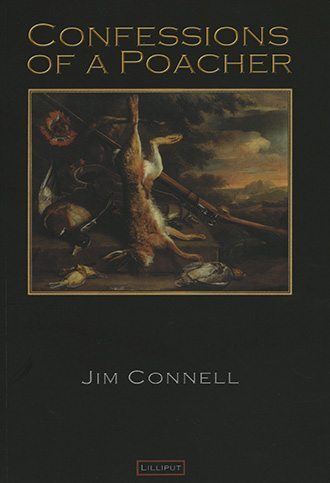Confessions of a Poacher
Confessions of a Poacher
Couldn't load pickup availability
This book is a vivid series of autobiographical sketches that describe Connell's early life among the Slieve Blooms and his move to London's East End. At weekends he sallies forth with his companions and beloved lurcher Nellie in quest of game: hare, pheasant, rabbit, partridge and salmon - most of it illegally trapped, snared and shot. He encounters magistrates and landlords, evoking a hierarchical late-Victorian world in which town and country merge, and peasant and gentry find common cause in a love of sport and the call of the wild. A biographical essay by historian Francis Devine accompanies the reissue of this forgotten rural classic, published by Lilliput Press in association with the Jim Connell Memorial Committee.
In 1889 Jim Connell wrote 'The Red Flag', which became the anthem of the international Labour movement. He was born near Kilskyre, County Meath, and in his teens moved with his family to Birr, County Offaly, where his family worked as a groom for the Earl of Rosse. He became involved with land agitation and was sworn into the Irish Republican Brotherhood, moving to Dublin in 1869; failing to unionize the docks, he went to London in 1875. There he worked as a navvy, railwayman and poacher, and was a popular figure in Fleet Street and a friend of Keir Hardie, with whom he produced the Socialist Journal. From his journalism grew his books, the most popular of them, Confessions of a Poacher (1901).
Details
Details
ISBN: 9781843510574
Extent: 173
Published:
Share

Praise and Reviews

About the Author
In 1889 Jim Connell wrote 'The Red Flag', which became the anthem of the international Labour movement. He was born near Kilskyre, County Meath, and in his teens moved with his family to Birr, County Offaly, where his family worked as a groom for the Earl of Rosse. He became involved with land agitation and was sworn into the Irish Republican Brotherhood, moving to Dublin in 1869; failing to unionize the docks, he went to London in 1875. There he worked as a navvy, railwayman and poacher, and was a popular figure in Fleet Street and a friend of Keir Hardie, with whom he produced the Socialist Journal. From his journalism grew his books, the most popular of them, Confessions of a Poacher (1901).

